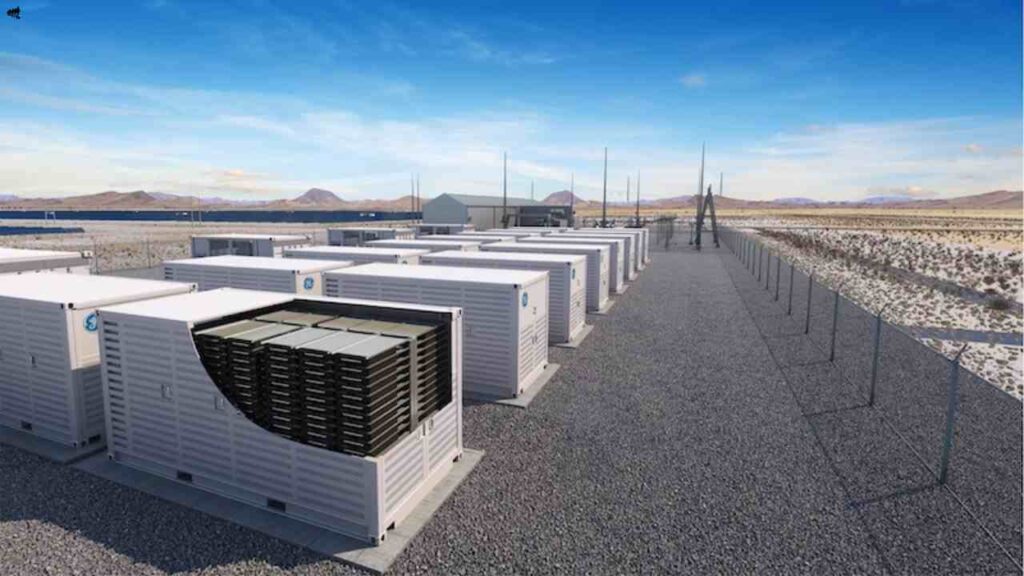Foxconn’s Ambitious Plans to Establish a Battery Energy Storage System Unit in India: A Game-Changer for the Energy Sector
Battery Energy Storage System: In recent years, India has emerged as a significant player in the global energy market, attracting major investments in renewable energy, electric vehicles (EVs), and sustainable technology. Among the latest developments is Foxconn's strategic move to set up a Battery Energy Storage System (BESS) unit in India. This initiative not only underscores the importance of India's burgeoning energy sector but also marks a critical step towards strengthening the country's renewable energy infrastructure. With Foxconn's expertise and India's growing demand for energy storage solutions, this partnership is poised to revolutionize the energy landscape in India.
The Growing Importance of Energy Storage in India

India's energy needs are growing rapidly, driven by its expanding economy and a population of over 1.4 billion. To meet this demand, the country has been aggressively pursuing renewable energy sources, particularly solar and wind. However, the intermittent nature of these energy sources presents a significant challenge: energy storage. Battery Energy Storage Systems (BESS) are emerging as a critical solution to this problem, allowing for the storage of excess energy generated during peak production times and its release during periods of high demand or low generation.
BESS plays a pivotal role in ensuring grid stability, reducing reliance on fossil fuels, and enabling the integration of a higher percentage of renewable energy into the grid. As India transitions towards its ambitious target of achieving 500 GW of renewable energy capacity by 2030, the need for advanced energy storage solutions has never been more pressing.
Foxconn's Strategic Investment in India
Foxconn, a global leader in electronics manufacturing, is no stranger to large-scale industrial projects. The company's decision to establish a BESS unit in India is a testament to its confidence in the country's energy sector and its potential for growth. This move aligns with Foxconn's broader strategy of diversifying its business portfolio and tapping into new and emerging markets.
India, with its robust policy framework supporting renewable energy and its strategic location, presents an ideal environment for Foxconn's BESS venture. The Indian government's Production Linked Incentive (PLI) scheme for Advanced Chemistry Cell (ACC) battery storage manufacturing is a significant factor driving this investment. The PLI scheme aims to promote domestic manufacturing and reduce dependency on imports by offering financial incentives to companies like Foxconn.
Impact on the Indian Economy and Energy Sector

The establishment of a BESS unit by Foxconn in India is expected to have far-reaching implications for the Indian economy and energy sector. Firstly, it will create numerous job opportunities, both directly and indirectly, boosting local economies and contributing to India's manufacturing capabilities. The project is likely to involve significant investments in infrastructure, technology, and research and development, further enhancing India's position as a global manufacturing hub.
Secondly, Foxconn's BESS unit will play a crucial role in addressing India's energy storage needs. By providing reliable and efficient storage solutions, the unit will facilitate the integration of more renewable energy into the grid, reducing the country's carbon footprint and enhancing energy security. This, in turn, will help India meet its climate goals and commitments under the Paris Agreement.
Moreover, the BESS unit will also contribute to the growth of the electric vehicle (EV) market in India. With the Indian government pushing for the adoption of EVs as part of its efforts to reduce greenhouse gas emissions, the demand for energy storage solutions is set to rise. Foxconn's entry into this market will provide a much-needed boost to the domestic EV ecosystem, supporting the development of a robust supply chain for EV batteries.
Challenges and Opportunities
While Foxconn's plans to set up a BESS unit in India are promising, the company may face several challenges along the way. One of the primary challenges is the availability of raw materials, particularly lithium, which is essential for battery production. India currently imports a significant portion of its lithium requirements, making it vulnerable to supply chain disruptions and price fluctuations. To mitigate this risk, Foxconn may need to explore alternative materials or invest in securing stable supply chains.
Another challenge is the need for skilled labor and technical expertise. The production of advanced energy storage systems requires a highly skilled workforce, and India will need to invest in education and training programs to meet this demand. Foxconn's experience in large-scale manufacturing could play a crucial role in building this capability, but collaboration with local institutions and governments will be essential.
Despite these challenges, the opportunities for Foxconn in India are immense. The Indian government's push towards renewable energy, combined with the country's growing energy needs, creates a favorable environment for investment in energy storage solutions. Furthermore, the global shift towards sustainable energy and electric mobility presents Foxconn with the chance to position itself as a leader in this emerging sector.
Conclusion
Foxconn's decision to establish a Battery Energy Storage System unit in India marks a significant milestone in the country's journey towards energy sustainability. As India continues to expand its renewable energy capacity, the need for reliable and efficient energy storage solutions will become increasingly critical. Foxconn's expertise, combined with India's supportive policy framework and growing energy market, creates a powerful synergy that could reshape the energy landscape in India and beyond.
The success of this venture will depend on overcoming challenges related to raw material availability, skilled labor, and technological innovation. However, with the right strategies and partnerships, Foxconn is well-positioned to make a lasting impact on India's energy sector. As the world moves towards a greener future, Foxconn's BESS unit in India could serve as a model for sustainable energy development, driving economic growth while contributing to global efforts to combat climate change.














1 comment